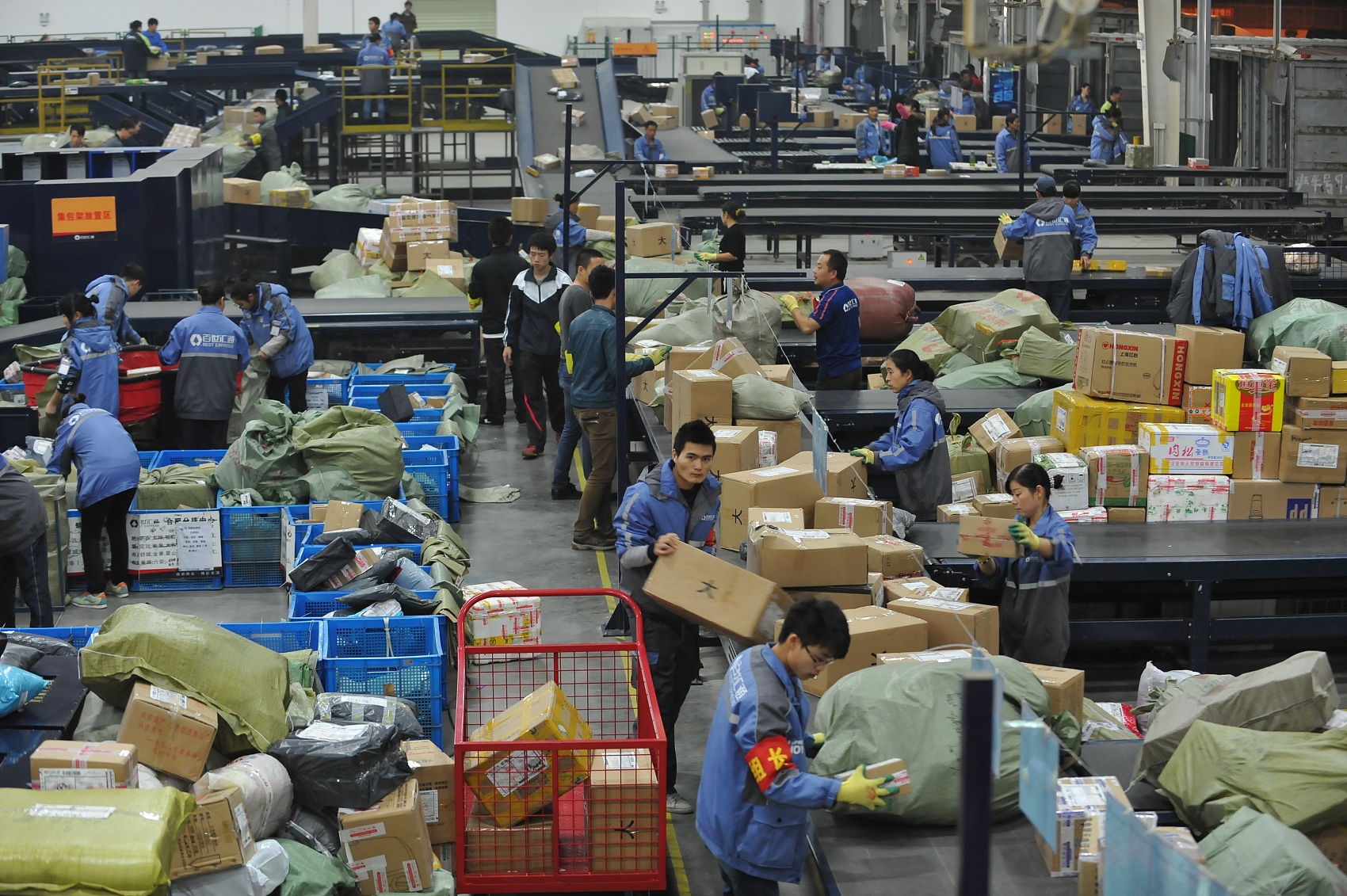As prices of products bought via cross-border e-commerce platforms are likely go up under China's new e-commerce law, which took effect on Tuesday, many private shopping agents (daigou) are considering leaving up the sector.

A bustling warehouse of a courier company in Central China's Wuhan City. (File photo: VCG)
"Access to the industry was quite low before," said a 20-something Hong Kong-based daigou named Evans Yang.
"Consumers, introduced by acquaintances on WeChat, were attracted by advertisements we posted. We could easily make deals online," Yang told the Global Times on Tuesday. Yang has been working as a daigou for two years and often goes to countries like South Korea and Japan to make purchases.
Yang said many private shopping agents she knows are considering whether to continue the service under the new policy as "it seems to have become more complicated by requiring business licenses and paying taxes," which will increase costs and lead to a rise in product prices.
The new law differentiates among categories of e-commerce operators, breaking them down into e-commerce platform operators, vendors on e-commerce platforms and those doing business on their own websites. These websites may be on platforms like Alibaba's Taobao or social network apps such as WeChat.
The law requires e-commerce operators to have business licenses that are valid for both China and the locations where they make purchases. It also requires e-commerce operators to meet their tax obligations in accordance with the law.
The new law does not aim to ban daigou, but it strictly regulates the threshold for the industry and creates a sound shopping environment for Chinese consumers, an industry insider surnamed Chen told the Global Times on Tuesday.
Individuals or platforms, or anyone who attempts to evade taxes or violate intellectual property rights (IPR), will have legal responsibility for those actions, Chen said.
If platform operators fail to take necessary measures against IPR infringement, they may face a penalty of 500,000 yuan ($72,690), or up to 2 million yuan in serious cases.
Several consumers the Global Times talked to on Tuesday said they would compare the prices offered by various sellers if prices rise and choose an appropriate supplier.
"There is also the possibility that I will shift my focus more to local products in the Chinese market if foreign goods become expensive," said Lei Lei, a 30-something white-collar worker in Beijing.
Analysts said the new law aims to regulate the market order, protect IPR and create a sound consumption environment.
"The new policy will not curb the industry's development. Instead, it will help lay the legal foundations for the growth of the domestic e-commerce business sector, maintain order in the market and further advance its growth in the long term," Liu Dingding, a Beijing-based industry analyst, told the Global Times on Tuesday.
"But individual business owners will find it hard to operate under the new law, which will crack down on counterfeit goods that were easily sold by individual vendors in the past," Liu said.
The outlook for the industry is one in which major e-commerce companies and platforms will dominate the market with more attention to legal compliance, Liu said.
There is a large growth potential for cross-border e-commerce in China. Transactions are estimated to have reached 8.8 trillion yuan in 2018, and may rise to 12 trillion yuan in 2020, industry website ec.com.cn reported.
By 2020, China's cross-border e-commerce business will account for 37.6 percent of the country's total foreign trade, with annual growth of nearly 20 percent, said the report.


